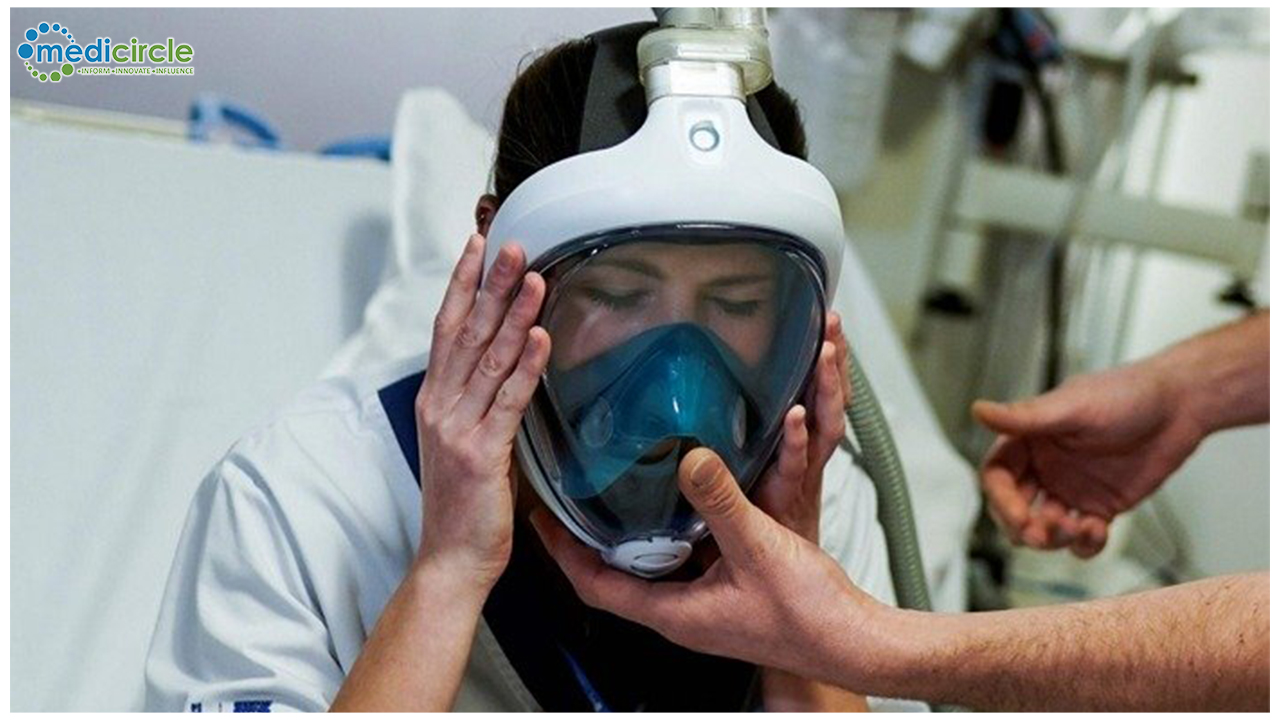As emergency clinics face an over-burden of COVID-19 patients attempting to inhale, imaginative clinical staff are diverting to swimming veils from sports stores to stop their lungs from crumbling.
The thought began in Italy, the European nation's most exceedingly terrible hit by the coronavirus pandemic, with clinics in different countries observing and including their particular clinical parts to make it work.
One such is the Erasme Hospital on the edges of Belgium's capital Brussels. It is connected to the city's ULB college - and through it to a private side project, Endo Tools Therapeutics, whose know-how in 3D printing for clinical utilize has demonstrated priceless.
"They are to be utilized for patients with extreme respiratory issues. The point is to abstain from intubating the trachea of the patient and put them on a respirator," said Frederic Bonnier, a respiratory physiotherapist at the clinic who likewise instructs at the college.
He led the structure of a handcrafted valve that fits the highest point of full-face covers, where the snorkel is intended to go, permitting them to interface with standard BiPAP machines that feed pressurized air into covers.
This forestalls the breakdown of alveoli, lung air sacs required for the admission of oxygen into our bodies and the exhalation of carbon dioxide. Pneumonia welcomed on by COVID-19 excites the lung layer and fills those sacs with fluid.
Stop-hole arrangement
In the most pessimistic scenario diseases, patients must be snared to respirators in concentrated consideration units.
Be that as it may, respirators are in urgently short inventory overall on account of the sheer number of patients.
The swimming cover arrangement could be a stop-hole measure for patients on the very edge of concentrated consideration treatment yet for whom no beds nor respirators are accessible. Medical clinic covers for the less-escalated BiPAP (bilevel positive aviation route pressure) machines are likewise deficient.
Bonnier said that from Monday he will testing 50 of the covers on patients.
They are a similar brand as those utilized by Italian specialists, gave by the French sportswear retailer Decathlon that has stores around the world. The covers themselves are made in Italy.
He clarified they were unmistakably more agreeable than the clinic ones that fit over the nose and mouth, gnawing into the skin. Yet, he forewarned they were not tried to clinical norms, which means they were one-utilize just, incapable to be disinfected between patients.
The Italian structure for the 3D-printed valve additionally required adjusting.
"It appeared to be genuinely muddled to make, quite overwhelming, not truly agreeable. So we had the plan to go somewhat further by intuition on it and building up our association part," he said.
The new plastic valve connectors have now been 3D-printed and are fit to be tried.
Bonnier included that wellbeing laborers in COVID-19 wards could likewise utilize the covers for security against the infection. In any case, he fears the open will begin alarm getting them, in this manner denying emergency clinics of a possibly life-sparing item.
He likewise said that, regardless of whether the tests demonstrate indisputably, there were still inquiries concerning what number of such covers could be made accessible by donning organizations, under what conditions.
Retailer mindful
Learning of the crisis use being made of its swimming covers, Decathlon communicated "premium" - yet besides reasonability.
"Right now we don't have the affirmation that these arrangements truly work," it said on its Twitter account.
"On the off chance that we see effective attempt outs, and these medical clinics affirm to us that a few tests work, at that point we'll keep you educated. However, meanwhile, be careful with unsourced and unconfirmed data spread via web-based networking media as of late."

 This helps prevent the collapse of alveoli, lung air sacs needed for the intake of oxygen into our bodies and the exhalation of carbon dioxide.
This helps prevent the collapse of alveoli, lung air sacs needed for the intake of oxygen into our bodies and the exhalation of carbon dioxide.









.jpeg)

.jpeg)
.jpeg)

.jpeg)


.jpeg)



.jpeg)
.jpeg)
.jpeg)


.jpg)


.jpeg)
.jpeg)